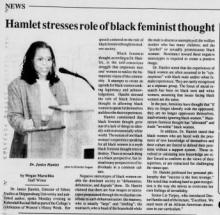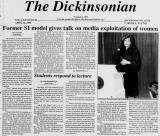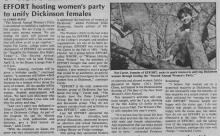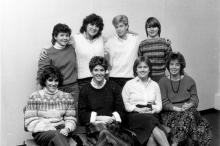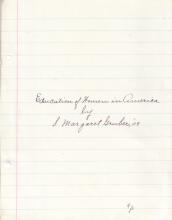Hamlet stresses role of black feminist thought
This Dickinsonian article discusses the visit and lecture given by Dr Janice Hamlet, Director of Ethnic Studies at Shippensburg University, as part of the College's celebration of Women's History Week. Her speech "centered on the role of black feminist thought in modern society." Hamlet was introduced by Dickinson Senior Liz Torpey who said "We need more of an African-American dimension in our curriculum."

